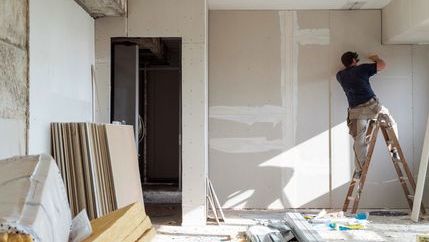
The scope of heat networks
The Department for Energy Security and Net Zero states that the types of buildings that could connect to the new heat networks include those that are already communally heated, as well as large non-domestic buildings over a certain size, such as hospitals, universities, hotels, supermarkets, and office blocks.
Addressing existing housing stock
Whilst new housing projects and larger scale commercial property, must be adequately addressed in terms of decarbonisation support, it remains true that existing UK housing stock is amongst the least energy efficient in Europe. The Committee on Climate Change stated energy use in homes accounts for about 14 per cent of UK greenhouse gas emissions. Non-domestic buildings account for around one-third of UK emissions from the building stock. Much of which will be unsuitable to connect to a heat network.
Our news article covered the Green Home Finance Accelerator (GHFA), a project from the Department for Energy Security and Net Zero (DESNZ) which is funding the development of consumer products to enable the take-up of home energy efficiency and low-carbon heat. Launched in January 2024, the project awarded £16 million to 16 pilot projects from retrofit mortgages to green energy loans for buy-to-let landlords. It is imperative that schemes such as this are extended, and further government support is committed to existing housing stock.
If the schemes are right, Landlords will commit
In September 2022, Propertymark provided evidence to the House of Lords Built Environment Committee Inquiry into the boiler upgrade scheme, highlighting that insufficient grant payments and a lack of awareness are leading to poor uptake. The Committee concluded that the scheme was failing to deliver its goals.
As a result, the grant provided by the Boiler Upgrade Scheme (BUS) was increased from £5,000 to £7,500 in September 2023 leading to a record number of applications in November 2023 (2557), clearly revealing appetite for decarbonisation within the property sector.
Boiler Upgrade Scheme
The UK Government’s Warm Home Plan sees more measures introduced to enhance energy efficiency, reduce costs, and promote cleaner heating. The Boiler Upgrade Scheme, which will offer £7,500 grants for heat pumps, and planning barriers will be removed to streamline the process.
Additional funding will target energy efficiency improvements for low-income households and social housing. This is part of a wider £3.2 billion investment in 2025/26 dedicated to insulation and low-carbon heating solutions.
The plan is expected to save households £100–£200 annually and includes raising energy efficiency standards for rental properties by 2030. Alongside this, the UK Government is launching a reformed Clean Heat Market Mechanism to drive innovation and adoption of heat pumps.
Mandatory targets
The uptake of retrofit measures and the rollout of the UK's Heat in buildings strategy is on the rise, reflecting a growing awareness of the need to enhance the energy efficiency of existing housing stock which is positive. However, Propertymark understands that, while these improvements are a step in the right direction, the pace may not be sufficient. Without mandatory targets, there is little sign that energy-efficient homes in the UK command higher prices. To meet the UK Government's ambitions, targets must be set to address the widespread issue of outdated, inefficient homes.
Secretary of State for Energy Security and Net Zero Ed Miliband MP has committed to reintroducing EPC C targets; however, the timelines for implementation remain vague.
Retrofit take-up is improving but should the UK be doing more?
The Department for Energy Security and Net Zero (DESNZ) reports applications to the Boiler Upgrade Scheme were 49% higher in December 2023 compared to the same month in 2022, but without mandatory targets, there is little sign yet that energy-efficient homes in the UK command higher prices.
Supporting Propertymark members
Consistent educational resources and regular updates on energy-related policies, particularly regarding the transition to sustainable energy practices have been provided to members.
To help homeowners and landlords our free guide to energy efficiency has provided information to improve energy performance and raise EPC ratings.





